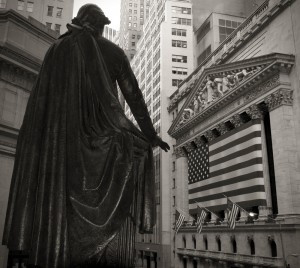 The attorneys at Gana Weinstein LLP are investigating BrokerCheck records reports that Seth Stewart, currently employed by Brookstone Financial and formerly employed by Center Street Securities, Inc. (Center Street), has been subject to at least two customer complaints during his career. According to records kept by the Financial Industry Regulatory Authority (FINRA), Stewart’s customer complaints allege that Stewart recommended unsuitable investments in illiquid alternative investments – a high risk investment category.
The attorneys at Gana Weinstein LLP are investigating BrokerCheck records reports that Seth Stewart, currently employed by Brookstone Financial and formerly employed by Center Street Securities, Inc. (Center Street), has been subject to at least two customer complaints during his career. According to records kept by the Financial Industry Regulatory Authority (FINRA), Stewart’s customer complaints allege that Stewart recommended unsuitable investments in illiquid alternative investments – a high risk investment category.
In February 2020, a customer complained that Stewart violated the securities laws by alleging that Stewart engaged in unsuitable investment advice. The claim alleges $200,000 in damages and is currently pending.
In December 2019, a customer complained that Stewart violated the securities laws by alleging that Stewart was unaware that certain investments he made were illiquid. The claim alleges $100,000 in damages and is currently pending.
DDPs include products such as non-traded REITs, oil and gas offerings, equipment leasing products, and other alternative investments. These alternative investments virtually never profit investors and are almost always unsuitable for investors because of their high fee and cost structure. Brokers selling these products are paid additional commission in order to hype these inferior quality investments providing a perverse incentives to create an artificial market for the investments.
Several studies have confirmed that Non-traded REITs underperform publicly traded REITs with some showing that Non-Traded REITs cannot even beat safe benchmarks, like U.S. treasury bonds. Brokers selling these products must disclose to the investor that non-traded REITs provide lower investment returns than treasuries while being high risk and illiquid – but almost never do. Because investors are not compensated with additional return in exchange for higher risk and illiquidity, these kinds of alternative investment products are rarely, if ever, appropriate for investors.
 Securities Lawyers Blog
Securities Lawyers Blog










